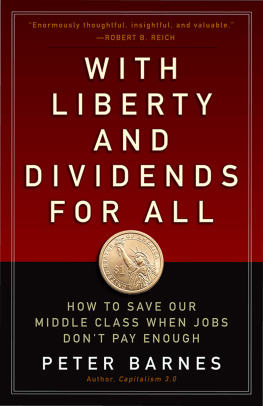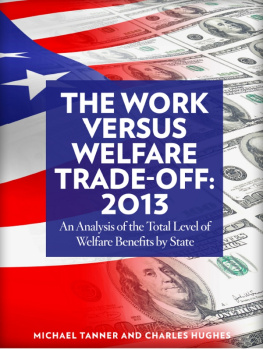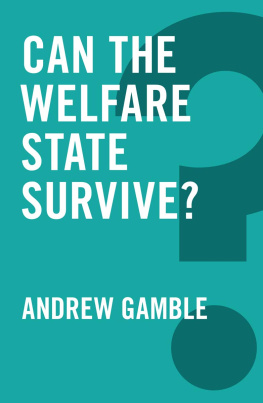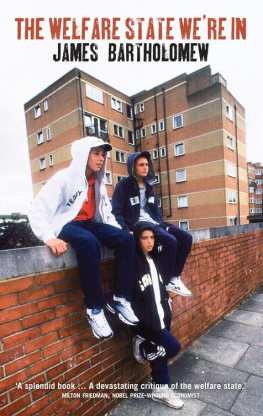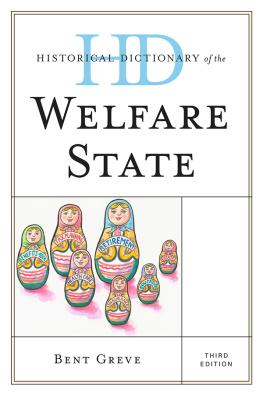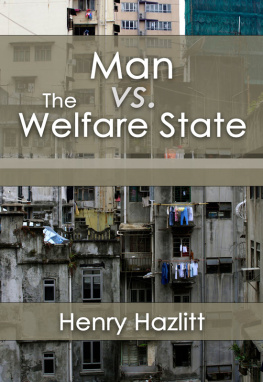Carolyn Barnes - Low-Income Families and the New Welfare State
Here you can read online Carolyn Barnes - Low-Income Families and the New Welfare State full text of the book (entire story) in english for free. Download pdf and epub, get meaning, cover and reviews about this ebook. year: 2020, publisher: University of Michigan Press, genre: Home and family. Description of the work, (preface) as well as reviews are available. Best literature library LitArk.com created for fans of good reading and offers a wide selection of genres:
Romance novel
Science fiction
Adventure
Detective
Science
History
Home and family
Prose
Art
Politics
Computer
Non-fiction
Religion
Business
Children
Humor
Choose a favorite category and find really read worthwhile books. Enjoy immersion in the world of imagination, feel the emotions of the characters or learn something new for yourself, make an fascinating discovery.

- Book:Low-Income Families and the New Welfare State
- Author:
- Publisher:University of Michigan Press
- Genre:
- Year:2020
- Rating:5 / 5
- Favourites:Add to favourites
- Your mark:
- 100
- 1
- 2
- 3
- 4
- 5
Low-Income Families and the New Welfare State: summary, description and annotation
We offer to read an annotation, description, summary or preface (depends on what the author of the book "Low-Income Families and the New Welfare State" wrote himself). If you haven't found the necessary information about the book — write in the comments, we will try to find it.
Low-Income Families and the New Welfare State — read online for free the complete book (whole text) full work
Below is the text of the book, divided by pages. System saving the place of the last page read, allows you to conveniently read the book "Low-Income Families and the New Welfare State" online for free, without having to search again every time where you left off. Put a bookmark, and you can go to the page where you finished reading at any time.
Font size:
Interval:
Bookmark:
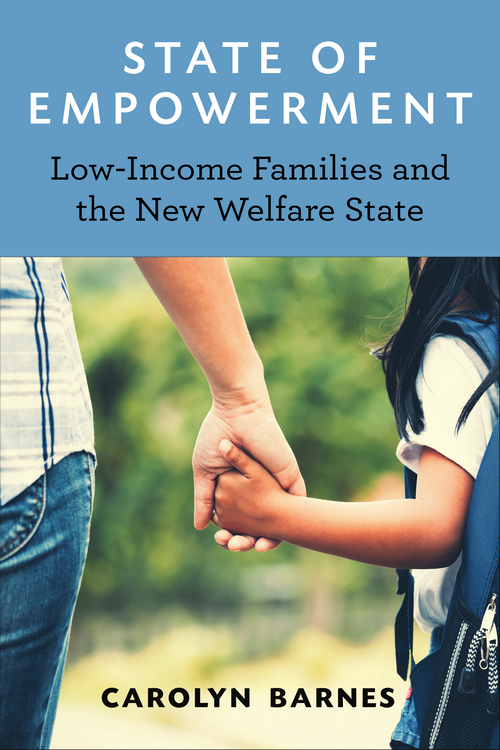
On weekday afternoons, dismissal bells ring at thousands of schools across the country. These bells signal not just the end of the school day but also the beginning of another important enriching activity: federally funded after-school programs offering tutoring, homework help, and basic supervision. After-school care reflects major shifts in social policy toward social services that support youth development and help low-income parents maintain employment. The scope of after-school programs has grown significantly in the last two decadesnearly one in four low-income families enroll a child in an after-school program. Beyond sharpening students math and reading skills, these programs also teach important lessons to parents. In a remarkable turn of eventsespecially given the long history of social policies that leave recipients feeling policed, distrusted, and alienatedgovernment funded after-school programs have quietly become powerful forces for political and civic engagement. Using ethnographic accounts of three organizations, Carolyn Barnes reveals how interactions with government-funded after-school programs can enhance the civic and political lives of low-income citizens.
Reversing the gatekeeping design of most programs targeting low-income citizens, after-school policy shifts power away from organizations and bureaucrats and puts it back in the hands of parents. After-school policy design rewards the inclusion of low-income parentsin program participation and decision-makingand elevates their status to parent-citizens.
Carolyn Barnes is Assistant Professor of Public Policy and Political Science at Duke University.
Carolyn Barnes
University of Michigan Press Ann Arbor
Page iv Copyright 2020 by Carolyn Barnes
Some rights reserved

This work is licensed under a Creative Commons Attribution-NoDerivatives 4.0 International License. Note to users: A Creative Commons license is only valid when it is applied by the person or entity that holds rights to the licensed work. Works may contain components (e.g., photographs, illustrations, or quotations) to which the rightsholder in the work cannot apply the license. It is ultimately your responsibility to independently evaluate the copyright status of any work or component part of a work you use, in light of your intended use. To view a copy of this license, visit http://creativecommons.org/licenses/by-nd/4.0/
Published in the United States of America by the
University of Michigan Press
Manufactured in the United States of America
First published March 2020
A CIP catalog record for this book is available from the British Library.
Library of Congress Cataloging-in-Publication Data
Names: Barnes, Carolyn, 1987 author.
Title: State of empowerment : low-income families and the new welfare state / Carolyn Barnes.
Description: Ann Arbor : University of Michigan Press, 2020. | Includes bibliographical references and index.
Identifiers: LCCN 2019034382 (print) | LCCN 2019034383 (ebook) | ISBN 9780472131648 (hardcover) | ISBN 9780472126200 (ebook) | ISBN 9780472901265 (ebook other)
Subjects: LCSH: After school programsSocial aspectsUnited States. | Children with social disabilitiesEducationUnited States. | Low-income studentsUnited States. | Low-income parentsPolitical activityUnited States. | Low-income parentsEmploymentUnited States. | Welfare stateUnited States.
Classification: LCC LC 34.4 . B 37 2020 (print) | LCC LC 34.4 (ebook) | DDC 371.04dc23
LC record available at https://lccn.loc.gov/2019034382
LC ebook record available at https://lccn.loc.gov/2019034383
This book is freely available in an open access edition thanks to TOME (Toward an Open Monograph Ecosystem)a collaboration of the Association of American Universities, the Association of University Presses, and the Association of Research Librariesand thegenerous support of Duke University. Learn more at the TOME website, available at: openmonographs.org
DOI: https://doi.org/10.3998/mpub.10131793
Cover image: Shutterstock.com / A3pfamily
Digital materials related to this title can be found on the Fulcrum platform via the following citable URL: https://doi.org/10.3998/mpub.10131793
This book was a labor of love. There were so many people that were instrumental in helping me complete this project. I would like to thank Sanford Schram, Jodi Sandfort, Andrea Campbell, Kristin Goss, Candis Watts, Linda Burton, and Jessi Streib for reading and providing extensive comments on an earlier draft of this book. I would also like to thank my wonderful colleagues, Judith Kelley, Elizabeth Ananat, Anna Gassman-Pines, and Christina Gibson Davis, for being patient cheerleaders throughout the process of writing this book and for offering critical feedback on chapter drafts. Id like to thank Nick Carnes, who generously read several early versions of this book in its entirety. You are the best big brother a junior scholar could ever have.
Parchelle Hotten, Elan Hope, Aaron Hope, Keri Carnes, Morgan Locklear, Jonathan Zebulske, Karla Sui, Jared Daugherty, Andre and Laura Mann, Mark and Amy Slaga, along with Kyle Beardsley, Peter Feaver, and Edward Dixon were constant encouragements. Julie Vissering, Nicole Cordero, Kemi Adeodu, Amanda Wren, Lynne Humphries, and Jean Fuschetti gave their time, opened their homes, and offered tremendous support to me throughout my time in Chicago. I would also like to thank Deondra Rose for sharing countless hours with me in her office, at lunch, or over dinner to talk about this book. You are the best.
I could not have written this book without wonderful research assistants. Thank you, Jene for your diligent transcription work. Thank you to Bria Redmond, Tytiana Allison, and Cheyenne Wilson, Linda Benson, Kerry Condon, and Melissa McGovern for your hard work on this project.
I am very grateful to the wonderful mentors at the University of Michigan and the University of Chicago. Rob Mickey made the intersection of public policy and urban politics fascinating. Sandy Danziger gave me my first qualitative research experience with families, which motivated this book. Page viii Nancy Burnss enthusiasm and brilliance pushed my thinking on the project and undoubtedly shaped the theoretical development of this work. Scott Allards work on nonprofits motivated this book as well. I am thankful for the opportunity to present early versions of this work at his doctoral student workshop. I would also like to thank Julia Henly for providing rich opportunities to study families experiences with childcare policies. Her mentorship greatly influenced the direction of this book.
Finally, I thank all of the parents who were brave enough to share their stories with me. It is not easy to open up your lives to a stranger. Thank you for trusting me with your stories. I also thank the staff at each of the organizations featured in the study for opening your doors to me. This book would not have been possible without you.
Publication of this open monograph was the result of Duke Universitys participation in TOME (Toward an Open Monograph Ecosystem), a collaboration of the Association of American Universities, the Association of University Presses, and the Association of Research Libraries. TOME aims to expand the reach of long-form humanities and social science scholarship including digital scholarship. Additionally, the program looks to ensure the sustainability of university press monograph publishing by supporting the highest quality scholarship and promoting a new ecology of scholarly publishing in which authors institutions bear the publication costs. Funding from Duke University Libraries made it possible to open this publication to the world.
Next pageFont size:
Interval:
Bookmark:
Similar books «Low-Income Families and the New Welfare State»
Look at similar books to Low-Income Families and the New Welfare State. We have selected literature similar in name and meaning in the hope of providing readers with more options to find new, interesting, not yet read works.
Discussion, reviews of the book Low-Income Families and the New Welfare State and just readers' own opinions. Leave your comments, write what you think about the work, its meaning or the main characters. Specify what exactly you liked and what you didn't like, and why you think so.


